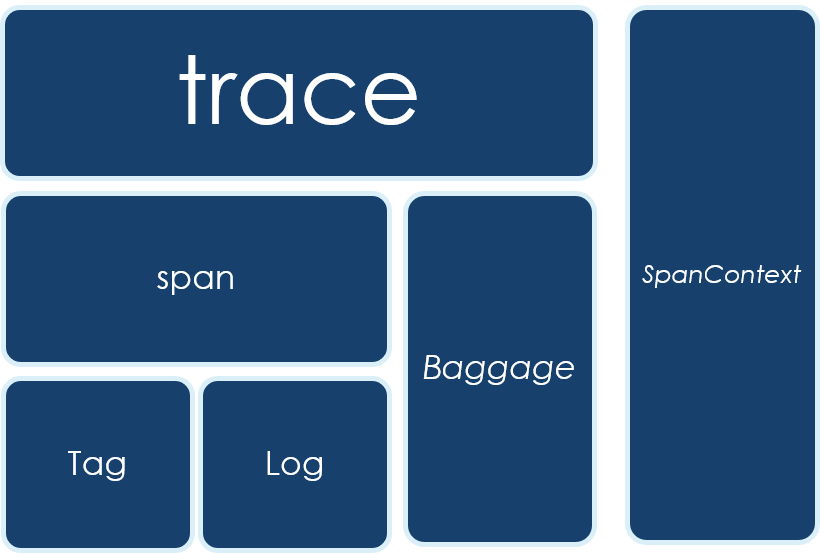# README
组件
Tracing
概览
- 基于 opentracing 语义
- 使用 protobuf 协议描述 trace 结构
- 参考 Kratos 代码改造,对比opentracing-go的实现更为轻量
结构定义
根据opentracing的语义:

Tag
kv结构
Log
kv结构
封装
Inject:注入的过程就是把 context 的所有信息写入到一个叫 Carrier 的 map 中,然后把 map 中的所有 KV 对写入 HTTP Header 或者 grpc MetadataExtract:抽取过程是注入的逆过程,从 carrier,也就是 HTTP Headers(grpc Metadata),构建 SpanContext
整个过程类似客户端和服务器传递数据的序列化和反序列化的过程。这里的 Carrier (Map)支持 Key 为 string 类型,value 为 string 或者 Binary 格式(Bytes)